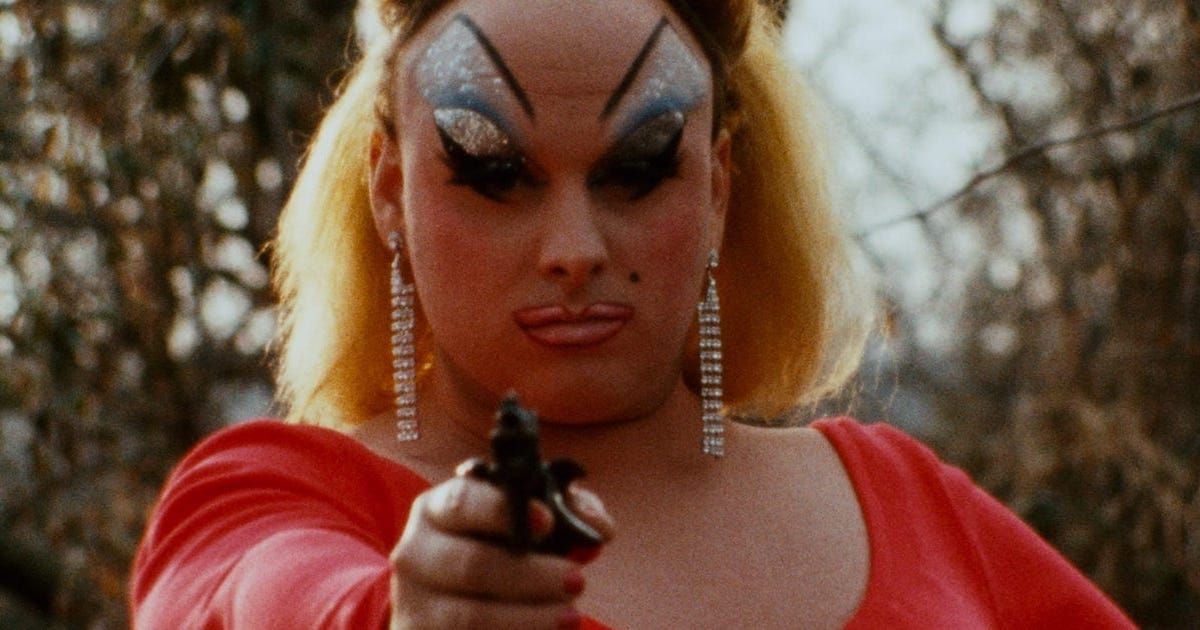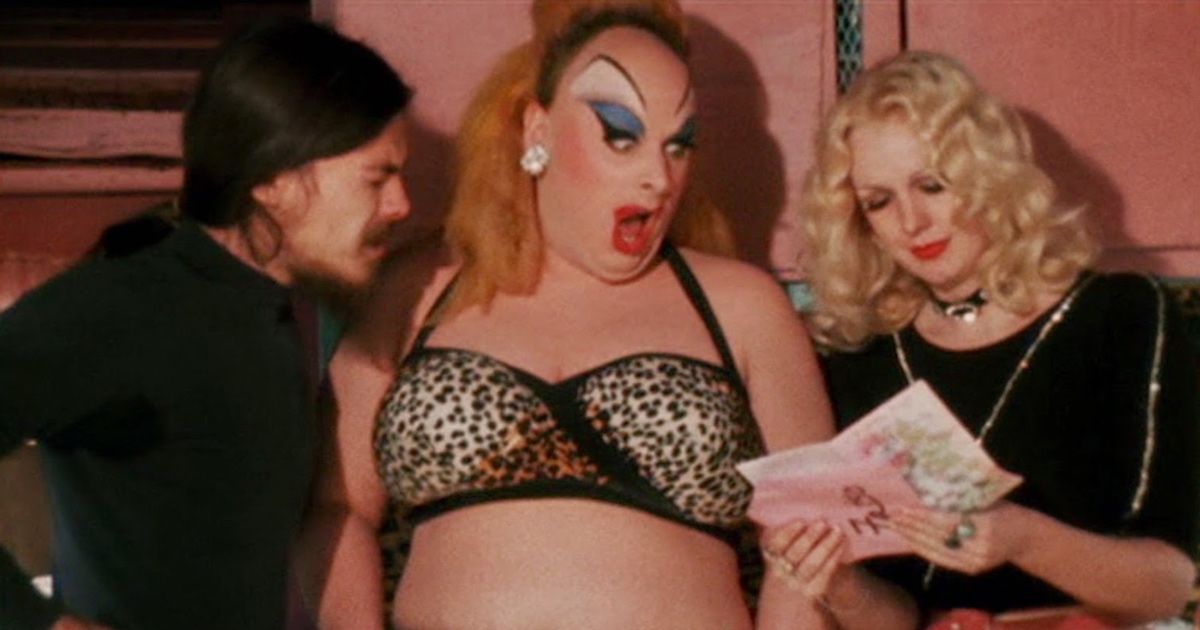Scrolling through a list of the most shocking or disturbing films of all time, like this one from Complex, there aren't too many surprises. Outside a few exceptions, most of the films are intense dramas (Requiem for a Dream), torture porn (Hostel), J-horror (most of Takashi Miike's filmography), or good old-fashioned exploitation flicks (Cannibal Holocaust). One of those outliers, and the highest-ranking aberration on this list, is John Waters' 1972 film, Pink Flamingos. It's the oldest film in the top ten of Complex's list, but that's not what makes it stand out. What's truly notable about Pink Flamingos, in this case, is that it's a comedy, not a horror film like most of the list.
Making a film this revolting that's also funny is an incredible feat that only writer-director John Waters could accomplish. Despite being a comedy and fifty years old, Pink Flamingos is still a challenging watch in 2022 for even the most desensitized viewer. In honor of the film's fiftieth anniversary and accompanying Criterion Collection release of a 4K remaster, let's take a moment to appreciate John Waters and his shocking yet oddly enjoyable third feature.
The Pope of Trash
If Pink Flamingos is Waters' third movie, what came before? How did Waters meet all the talent featured in the film? To answer those questions and more, let's take a look at a recent article from Baltimore Magazine that goes deep into the history of the cult classic.
Not even eighteen, Waters began hanging around the Baltimore-area gay bar, Martick’s, where he met some of his earliest collaborators. At the same time, he got to know some of Pink Flamingos' future cast, including David Lochary, Nancy Paine Stole (who Waters would nickname Mink), and Harris Glenn Milstead, more famously recognized by his drag name, Divine. Waters and his collaborators, known as the Dreamlanders, would go on to make a few shorts and two features (1969's Mondo Trasho and 1970's Multiple Maniacs) before creating the film that would gain them the notoriety and infamy they have earned today.
An Exercise in Poor Taste
The above trailer should give you a good indication of how overwhelming the Pink Flamingos viewing experience can be. Instead of employing the traditional movie advertising method of editing together clips to entice the viewer, this trailer instead showcases audience reactions to the film. One woman sums it up by saying it's "the most disgusting thing [she's] seen in [her] whole life." In a move that would be emulated by a very different movie years later, Cloverfield, the marketing team at New Line Cinema let audiences' imaginations run wild with the possibilities of what could possibly be contained within Pink Flamingos. However, nothing they could think of could come even close to matching the actual film.
It's hard to overstate just how wild Pink Flamingos can be; text descriptions alone can't spoil the shock of the oddities contained within. You can say that Divine eats some random dog mess off the street, yet nothing can prepare you for actually watching those moments unfold on the big screen, especially with the newly remastered edition. It's truly a movie that can't be spoiled because even the most seasoned midnight moviegoer will still look away from the screen during at least one of the film's many disturbing moments.
Trash Comedy Classic
What makes Pink Flamingos stand the test of time and remain a cult classic to this day is not just its vulgar content. Rather, the film's most enduring qualities are its entertainment value and proudly queer boundary-pushing. Unlike, say, 2010's barely watchable A Serbian Film, Pink Flamingos is fun to watch. Even at its grossest, the movie is hilarious, featuring great jokes and one-liners. Sometimes it's unclear whether the laughter comes from shock or humor, but any screening of Pink Flamingos will be full of people having a good time.
The film's edginess also has a purpose. Pink Flamingos is unabashedly queer, with a drag queen as the star and a gay man as the director. Since homophobes accused LGBTQ+ people of being objectionable, John Waters decided to reclaim that disgust for his own and use it for his creative endeavors. It's both remarkable, and sad that Pink Flamingos' in-your-face queerness feels both necessary and refreshing in today's climate of regression and poor media representation.
Unfortunately, many people, John Waters included, like to make a big fuss about how overly sensitive today's viewers are. Sure, some people out there get offended too easily, but Pink Flamingos' enduring relevance and appreciation, particularly amongst marginalized communities, should quell those fears. With Pink Flamingos, Waters made an essential film that can be hard to look at but is a joy to watch.



